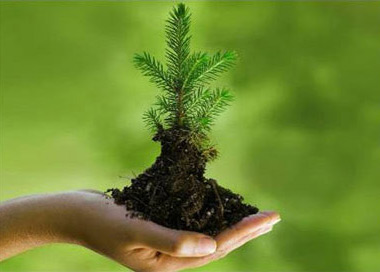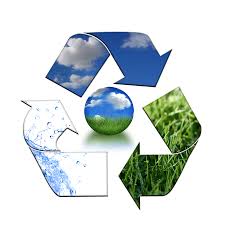Man and his continuous destruction on mother nature.
Imagine a world without Bees.
AN ACT LEGALIZING INDUSTRIAL HEMP.
 A bill to end hemp prohibition in Connecticut has become law without the governor’s signature. The measure was passed by the state’s Senate unanimously 36 to 0, and was approved by the state’s House of Representatives with a 142 to 2 vote. The new law – which goes into effect on July 1st – ends hemp prohibition in its entirety, removing hemp from the state’s list of controlled substances. Read more here or you can download this document for proof: Public Act.
A bill to end hemp prohibition in Connecticut has become law without the governor’s signature. The measure was passed by the state’s Senate unanimously 36 to 0, and was approved by the state’s House of Representatives with a 142 to 2 vote. The new law – which goes into effect on July 1st – ends hemp prohibition in its entirety, removing hemp from the state’s list of controlled substances. Read more here or you can download this document for proof: Public Act.
That is actually not my main point. What i mean to say is we can change the world if we as the people want to. Let not the politicians or the rich and elite decide what is good for ordinary people, but them decide for themselves what is right or good for them. Let us also take time and dedicate something for mother nature. Grow a tree or a flower somewhere and take care of it. Show connection with nature and surely, Love will grow in all of us. Change the laws in regard to the environment if need be. Just do some justice to nature and lets save ourselves some trouble. 
Sometimes i wonder why people will spend billions on money to wage war on fellow-man while they could have spent even less saving the environment from climate change. I mean, just think of it. If every belly is full we would need no reason to fight each other. If we think about natural existence then we would forget about a world controlled with money. Or what do you think?
Paul Mwadime Kombo’s Vetiver network eyes Nairobi River Basin
Paul Mwadime Kombo’s Vetiver Network System Technology has challenged Nairobi City County authorities to adopt the new technology in its fight to enhance clean water and to re-habilitate the Nairobi River Basin and Dam.
He was speaking on the sidelines of the 4th edition of Malaika Festival held last Saturday at Voi City’s Galaxy Resort. The Resort is located a stone’s throw away from the World-famous Tsavo East National Park, whose dwindling elephant population through poaching and environmental degradation through illegal cattle-grazing activities have posed serious challenges to the Kenya Wildlife Service, leading to the recent amendment to the Wildlife Conservation and Management Act, 2013. One of the Festival’s objectives is to promote environmental conservation.
Paul Mwadime Kombo, who fronts the promotion of Vetiver System Technology in Kenya, has been operating from a 15-acre farm at Msinga area located within the Voi River Basin, beyond the Coast Institute of Technology, for the last 12 years. Previously, he had operated a similar farm at Gimba area, situated in the outskirts of Voi Town along the route to Sagalla Hills, but, which he lost unfortunately to arsonists who were later arraigned before Voi Court for the crime of arson in late 2008.
According to Paul Mwadime Kombo, the vetiver system has not only been proven as a green solution in environmental issues and climate change, but can, also, be used to stabilize National and County infrastructure like highways, railway lines, culverts, drainages and landscaping, on-farm, gulley-hilling, reclamation of dumping sites, mining areas, grazing lands, decoration, thatching materials, handicrafts, etc. Thus, It is also being regarded as a future industry.
Voi River, which shares similarities with River Thames of London, the Seine of Paris-both of which cut across the two European Cities- and the City of Nairobi, flows through Voi City and crosses the Tsavo East National Park into Kilifi County. Having joined with the Tsavo River which flows from the Kyulu Hills, the River, now known as Galana, then empties its silted waters into the Indian Ocean.
The world-renowned vetiver grass is being touted as having a big potential in waste water purification and stabilization of river banks. The system has also been known to sustain green river banks and zero erosion all year round.
In 2010, Paul Mwadime Kombo was named as an Environmental Warrior in his vetiver promotional works in Taita Taveta County, during that year’s Mashujaa Day celebrations held at Voi Moi Stadium.
In 2011, Paul Mwadime Kombo was further awarded the Certificate of Technical Excellence in vetiver system technology by the Vetiver Network International, TVN of Washington, DC. In 2012, he was invited to the PGA Gala Night at the KICC Comesa Grounds, being among the Prestigious Green Award nominees.
Paul Mwadime Kombo was successfully engaged by Wundanyi CDF Environmental Kitty to re-habilitate 2.4 Kilometres of Wundanyi River in July 2012 using the Vetiver System Technology. Unfortunately, the re-habilitation work has stopped after doing a quarter Kilometre only, due to lack of funding.
Although he has attempted to re-habilitate some parts of Voi River bank using the Vetiver System Technology which recorded impressive results, Paul Mwadime Kombo laments however, the lack of official support from both Central Government and the former Voi Municipal Council as well as, members of the public. Says Paul Mwadime Kombo, “ There were cases of corruption involving sand harvesters and brick-makers along Voi River Basin and some rotten former Administration and Agriculture officials. The same applied to Voi Municipal Council officials collecting cess from the same activities. The combined effect has been very damaging to Voi River Basin!” Voi River currently is a pale, ugly shadow of its former glory forcing residents of the surrounding areas to find alternative ways of fetching water. The same problem has caused human and wildlife conflicts along the River Basin as elephants and other wild game like gazelles, leopards and even lions go out of the Tsavo East National Park in search of water as they destroy farm produce. In some cases, lions have even mauled domestic animals like goats, sheep, cows and dogs.
Paul Mwadime Kombo, whose local Vetiver Network Technology is in partnership with the Malaika Festival-an annual cultural celebration in honor of the late Kenyan rumba and Kiswahili blues singer Fadhili William of the World-famous “Malaika” song fame- believes that although a lot of work has evidently been done by the Kenya Government over the Nairobi River Basin, especially during the tenure of the late Hon. John Michuki as Minister for Environment and Natural Resources, there is still need to consolidate the gains, and demonstrate the vetiver magic practically as Nairobians gradually become more aware of the potential benefits associated with vetiver grass.
While Malaika Festival show-cases generally the very best in Taita Taveta traditional dishes, drinks, drums and budding musical talents led by Fadhili’s “Malaika” flagship sounds, Paul Mwadime Kombo’s vetiver too, promises to “grass up” Taita Taveta’s branded cultural “export “ to its Nairobi sister County where, significantly, its famous son Fadhili William cut his musical and artistic teeth.
Duncan Mwanyumba,
Convener, Malaika Festival,
Voi City, Saturday, February 22, 2014
This is a scientific post technically meant for those interested in understanding broadcast system for environmental data. Basically its an environmental data and product dissemination system. It utilises digital video broadcast (DVB) technology and uses commercial telecommunication satellites to broadcast data.
Operates 3 broadcasts: Europe in KU-band via Eurobird-9 Africa in C-band via Atlantic Bird-3 Americas in C-band via Newskies-806 Its features: √Use off the shelf,commercially available DVB reception equipment. √Highly scalable system architecture. √one stop shop delivery mechanism allows users to receive many data streams via one reception station.
Content by: MajaliaMjomba
Kids’ genes, environment affect sleep differently
Researchers compared sleep patterns for close to 500 sets of identical or fraternal twins. They found that especially as kids got older, environmental influences – which include when parents put kids in bed, for example – explained more and more of their napping differences. “Even though the results do not explicitly state which are the environmental factors,” said Sonia Brescianini, “researchers in the field think that familial habits at bed time, sleeping routines, and in general sleep hygiene measures are for sure a means of improving sleep in children.” Brescianini, a researcher with the Italian Twin Register at Rome‘s Istituto Superiore di Sanità who was not involved in the new study, told Reuters Health in an email that past research has also suggested a child’s environment may be more important than genetics for daytime sleep habits. The new study involved 983 individual children born in greater Montreal, Canada, from 1995 to 1998. Mothers were asked about each twin’s daytime and nighttime sleep patterns at age 6, 18, 30 and 48 months. By comparing sets of identical and fraternal twins, Dr. Jacques Montplaisir from the University of Montreal and his colleagues were able to determine how much of kids’ sleep variation was due to genes – which are the same in identical twins – and how much to environmental factors. For example, Brescianini explained, the more identical twins are similar and fraternal twins are not for a given trait such as sleep schedules, the more that trait is likely to be genetic. But if both types of twins resemble each other in similar ways, the trait is likely affected by a child’s environment. At three of the four time points, genetics accounted for between 47 and 58 percent of nighttime sleep duration. The majority of children slept 10 or 11 continuous hours at night. The one age when environment seemed to play a strong role in overnight sleep was at 18 months. That suggests that age “might be an appropriate time of intervention in children with not satisfying sleep duration and quality,” Brescianini said. But genes never explained more than about one-third of daytime nap length, the researchers reported Monday in Pediatrics. Family routines and other shared environmental influences, on the other hand, accounted for between 33 and 79 percent of whether or not twins were napping during the day, and for how long. That association became stronger as children got older and average nap length shortened. The researchers said a similar study needs to be done using more exact tools to measure sleep, such as movement sensors or laboratory monitors. In addition, it will be helpful to look at what family-related factors may affect daytime sleep, Montplaisir and his colleagues wrote. “Good sleep duration and quality is very important for children’s physical and mental health because sleeping behavior has been associated with obesity, poor school performance and other behavioral disorders,” Brescianini said. “In order to promptly intervene, more knowledge is needed on how sleeping behavior changes through childhood.”
If You Think China’s Air Is Bad, You Should See The Water
The unhealthy smog that settled over Beijing earlier this year, capturing international media attention, is not the only visible sign of China’s rapid economic growth and the resulting environmental hazards. Countless rivers and lakes have also been contaminated by nearby factories, and sometimes, dumping by local residents.

This March, more than 2,000 dead pigs were found floating in a Shanghai river, a main water source for the city’s 23 million residents. Polluted water sources have been linked to a rise in “cancer villages,” or areas where cancer rates are high among people who live along tainted waterways. Time’s Gu Yongqiang contends that China’s failure to address environmental problems isn’t a product of technical or financial constraints, but rather an overwhelming lack of motivation by authorities.
See China’s water pollution >
What we need to know about the environment.
 When I was a young boy, my teacher taught me how to take good care of the environment. He gave me sufficient knowledge on how to make the world a better place for everyone to live. I learnt that nothing in the environment can survive independently, this means living things have to interact in order to survive. The environment provides the best platform for all living things to interact. At this century in life, am still learning and researching more about the environment.
When I was a young boy, my teacher taught me how to take good care of the environment. He gave me sufficient knowledge on how to make the world a better place for everyone to live. I learnt that nothing in the environment can survive independently, this means living things have to interact in order to survive. The environment provides the best platform for all living things to interact. At this century in life, am still learning and researching more about the environment.  There are several definitions of the word environment. These definitions vary in terms of field of study. However, in this context, environment is defined in the most simplified terms. An environment simply means the surrounding which someone or something is enclosed in. The word environment originated from the French word ‘environ’ which means surroundings and ‘ment’ which means actioning. Every living thing in this world is in one way or another involved with the dynamic changes in the environment. A good example of human actions which have directly affected the environment are excessive use of factories which emit poisonous gases thereby forming a blanket at the ozone layer, leading to global warming. News keep flowing in, in television and radio stations all over the world in regards to risks and dangers we are likely to face in future if we don’t take any quick action on the environment, i.e. how the value of land is being degraded, the purity of air and water being lowered each and every day. A recent research depicted that with the poor environmental management going on and the depletion of ozone layer becoming worse than the Kenyan coast of Mombasa is likely to be submerged in 50 years to come due to the melting snow peaks and hence the rising sea levels. How would life be if our environment is not clean and pure? One of the world’s recognized Kenyan hero, Prof Wangari Mathai, put on a fight in defence of land degradation and deforestation. She had the will and power to save nature and its environs for the sake of future generations. If she could do all this by herself, what if we all join hands? Avoid deforestation, discourage usage of non bio degradable materials like polythene, plant trees and even work on the major waste management principle of REDUCING RE-USING and RECYCLING?
There are several definitions of the word environment. These definitions vary in terms of field of study. However, in this context, environment is defined in the most simplified terms. An environment simply means the surrounding which someone or something is enclosed in. The word environment originated from the French word ‘environ’ which means surroundings and ‘ment’ which means actioning. Every living thing in this world is in one way or another involved with the dynamic changes in the environment. A good example of human actions which have directly affected the environment are excessive use of factories which emit poisonous gases thereby forming a blanket at the ozone layer, leading to global warming. News keep flowing in, in television and radio stations all over the world in regards to risks and dangers we are likely to face in future if we don’t take any quick action on the environment, i.e. how the value of land is being degraded, the purity of air and water being lowered each and every day. A recent research depicted that with the poor environmental management going on and the depletion of ozone layer becoming worse than the Kenyan coast of Mombasa is likely to be submerged in 50 years to come due to the melting snow peaks and hence the rising sea levels. How would life be if our environment is not clean and pure? One of the world’s recognized Kenyan hero, Prof Wangari Mathai, put on a fight in defence of land degradation and deforestation. She had the will and power to save nature and its environs for the sake of future generations. If she could do all this by herself, what if we all join hands? Avoid deforestation, discourage usage of non bio degradable materials like polythene, plant trees and even work on the major waste management principle of REDUCING RE-USING and RECYCLING?
i.e. if we can’t reduce production of some waste then we should work on re using these e.g. polythene and if this is impossible then these materials should be taken for recycling and not just deposited anywhere yet they are non bio degradable.We don’t have to study environmental science, in order to know what to do and what not to do in our environment. Movies, documentaries, journals, newspapers, magazines and online blogs can be very reliable sources of information. We can share the knowledge to less informed citizens just like this article. Let us all join hands to create awareness to the people in the universe about how important the environment that we live in is. As they say, “information is power” Our environment is our health and our beauty…so let us work on what belongs to us.




254EAEc 1:14 am on October 8, 2014 Permalink |